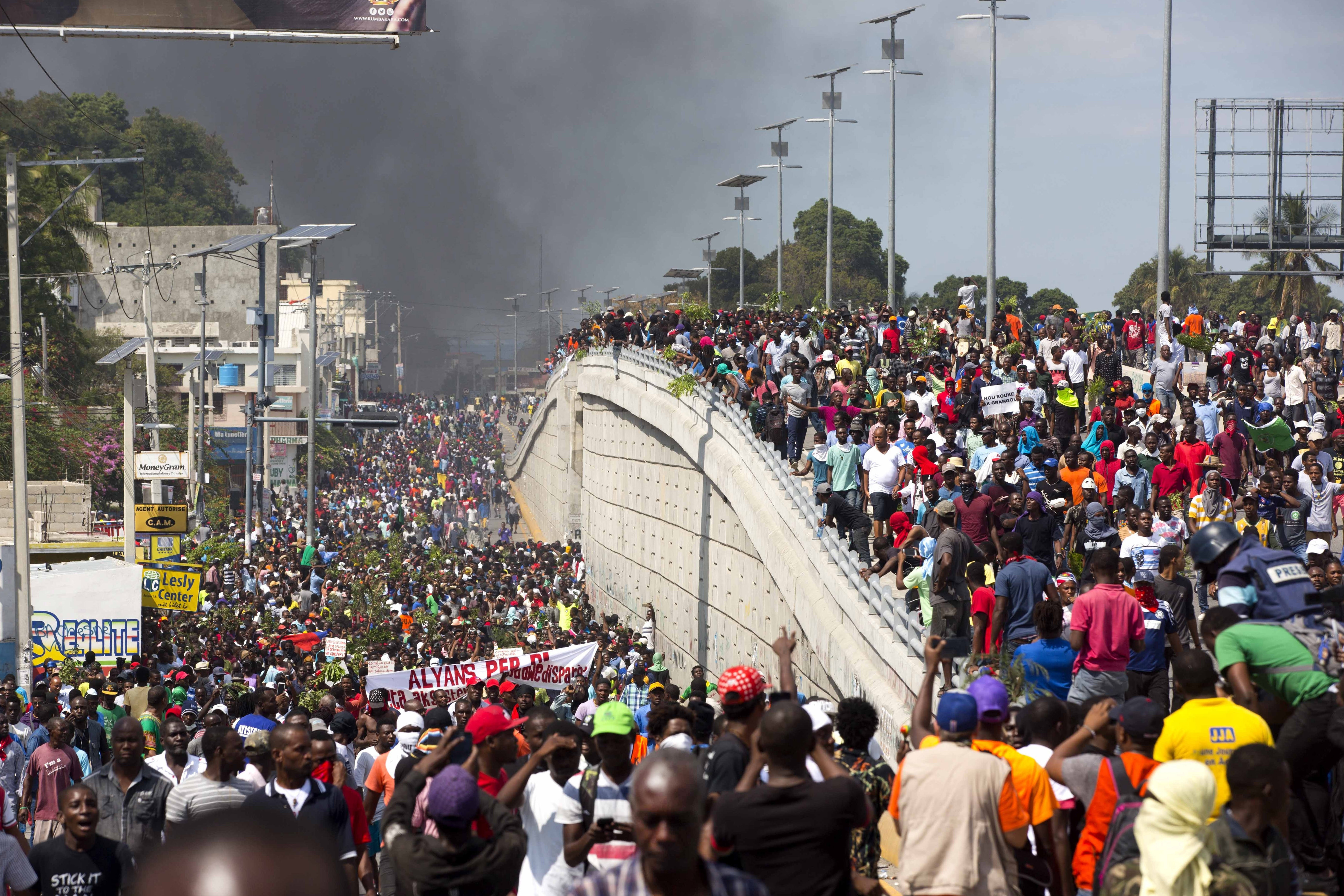
By EVENS SANON
Associated Press
PORT-AU-PRINCE, Haiti (AP) — Haitians on Friday vowed to keep protesting until President Jovenel Moise resigns, despite his announcement of upcoming economic measures designed to quell more than a week of violent demonstrations across the country.
Moise said during a televised address late Thursday that he would not surrender the country to armed gangs and drug dealers, and he accused people of freeing prisoners to kill him. It was the first time Moise had spoken since the demonstrations began, and he made another call for dialogue with the opposition.
“I heard the voice of the people. I know the problems that torment them. That’s why the government has taken a lot of measures,” he said. “I asked the Prime Minister to come and explain them and implement them without delay in order to relieve misery.” He said Prime Minister Jean-Henry Ceant will share details of the new economic measures Friday.
The announcement comes as protesters remain angry about skyrocketing inflation and the government’s failure to prosecute embezzlement from a multi-billion dollar Venezuelan program that sent discounted oil to Haiti. Few believe the government will take any steps to alleviate the crisis.
“The president has been lying to the nation,” said Marco Jean-Baptiste, a 41-year-old mechanic who has been unable to work since the demonstrations began and worries about his three children. Protesters continued to block roads across Haiti as food, water and gas became scarce. Schools, businesses and government offices remain closed.
Widler Saintil, a 35-year-old shop owner, said he has been forced to reduce the amount of food he eats because he can’t afford to buy as much milk, bread, sugar, rice or beans as before. He also has been unable to work or send his two children to school. “The situation has gotten worse,” he said, adding that he will take part in the demonstrations until Moise resigns.
Moise was sworn in as president in February 2017 for a five-year term and promised to fight corruption and bring investment and jobs to one of the least developed nations in the world. His swearing-in marked Haiti’s return to constitutional rule a year after ex-President Michel Martelly left office without an elected successor amid waves of opposition protests and a political stalemate that resulted in suspended elections.
Moise is a businessman from northern Haiti and had never run for office until he was hand-picked in 2015 to be the Tet Kale party candidate by Martelly.
On Thursday, the U.S. Department of State issued a travel advisory warning people not to travel to Haiti because of crime and civil unrest. It recalled all non-emergency U.S. personnel and their families and warned that it had limited ability to provide emergency services to U.S. citizens in the Caribbean country.
Some tourists and missionary groups along with foreign doctors and nurses have been unable to leave Haiti because protests and barricades have blocked access to the airport, according to social media posts.
















